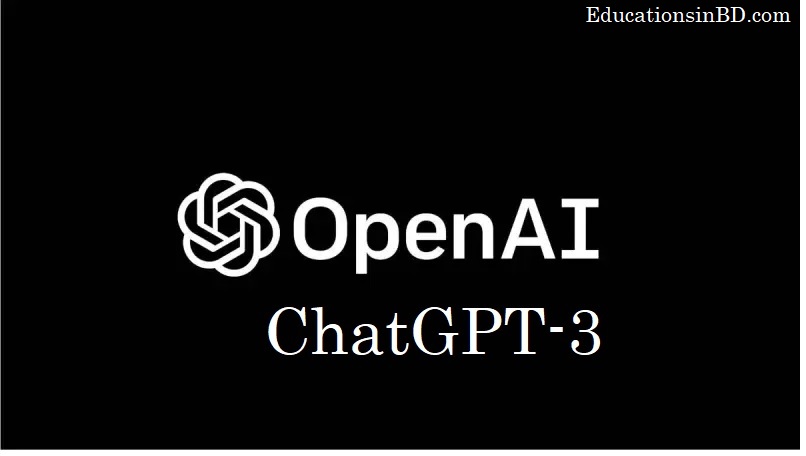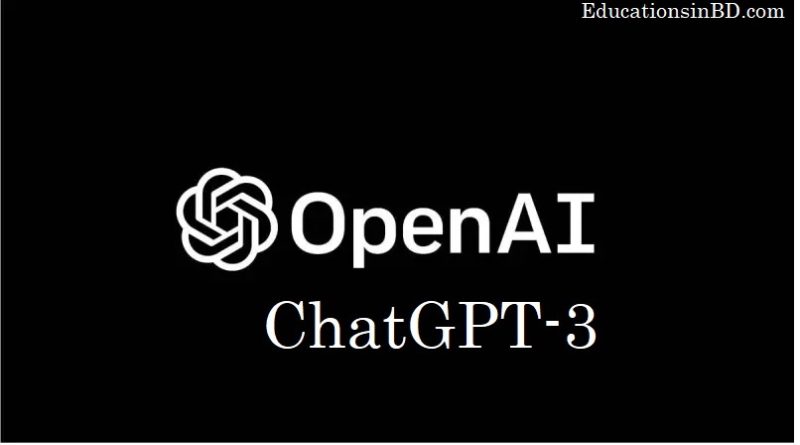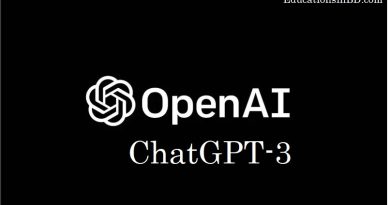FAQs about ChatGPT Frequently Asked Questions
FAQs about ChatGPT Frequently Asked Questions; ChatGPT is an AI-powered language model developed by OpenAI. It uses deep learning techniques to generate human-like text responses to a given prompt. It can answer questions, generate creative writing, summarize text, and much more.
ChatGPT is a state-of-the-art language generation model trained on a diverse range of internet text, including conversations, articles, and books. Its training data includes a large corpus of diverse text from the web, allowing it to generate text in a wide range of styles and on a wide range of topics.
The model is built using the transformer architecture and has been trained on a massive amount of data, making it one of the largest language models currently available. This training enables ChatGPT to generate high-quality, human-like text, which makes it useful for a variety of natural language processing tasks, such as chatbots, text completion, text summarization, and more.
Here are some common FAQs about ChatGPT:
Q: What is ChatGPT?
A: ChatGPT is a language model developed by OpenAI, capable of generating human-like text based on a prompt it is given.
Q: How does ChatGPT work?
A: ChatGPT uses the transformer architecture and is trained on a large corpus of text data to generate outputs. The model uses attention mechanisms to weigh the importance of different words in the input and generate an appropriate response.
Q: Can ChatGPT answer any questions?
A: ChatGPT can answer a wide range of questions but its responses are not always correct and may contain errors. It has a knowledge cutoff of 2021 and may not have information about more recent events.
Q: Is ChatGPT a human?
A: No, ChatGPT is an artificial intelligence language model developed by OpenAI.
Q: Can ChatGPT understand emotions and sarcasm?
A: ChatGPT can generate text that appears to convey emotions and sarcasm, but it does not truly understand the underlying emotions and sentiments.
Q: Can ChatGPT be used for malicious purposes?
A: Like any technology, ChatGPT can be used for both beneficial and harmful purposes. It is important to use it responsibly and ethically.
Q: How accurate is ChatGPT’s information?
A: ChatGPT is trained on a large corpus of text data, but the information it generates may not always be accurate or up-to-date. It’s always a good idea to verify information with multiple sources before making important decisions.
Q: Can ChatGPT generate text in multiple languages?
A: Yes, OpenAI has developed multilingual models of ChatGPT that can generate text in multiple languages.
Q: Can ChatGPT be used for creative writing?
A: ChatGPT can generate text that may serve as inspiration for creative writing. However, the output may not always be of high quality or original.
Q: Can ChatGPT provide personal advice?
A: ChatGPT can generate text that appears to offer advice, but it does not truly understand the context of the situation and may provide generic or potentially harmful advice. It is always best to consult a trusted human advisor for personal advice.
Q: Can ChatGPT remember previous interactions?
A: No, ChatGPT is a stateless model and does not retain information from previous interactions. Each interaction with ChatGPT is independent and treated as a new prompt.
Here are some additional FAQs about ChatGPT:
Q: How does ChatGPT differ from other AI models?
A: ChatGPT is a state-of-the-art language model developed by OpenAI using transformer architecture. It uses attention mechanisms to weigh the importance of different words in the input and generate an appropriate response. There are other AI models, such as rule-based systems and retrieval-based models, that use different approaches to generate text.

Q: Can ChatGPT be used for customer service?
A: Yes, ChatGPT can be used for customer service by generating responses to customer inquiries. However, it is important to note that ChatGPT may not always provide accurate or helpful information, and a human customer service representative should always be available to assist as needed.
Q: Can ChatGPT generate code?
A: No, ChatGPT is primarily designed to generate text and does not have the capability to generate code.
Q: How can ChatGPT be integrated into my application?
A: ChatGPT can be integrated into applications via the OpenAI API, which allows developers to send prompts to the model and receive generated responses.
Q: What ethical considerations should be taken into account when using ChatGPT?
A: As with any technology, it is important to use ChatGPT responsibly and ethically. This includes ensuring that the generated text does not contain hate speech, misinformation, or other harmful content. Additionally, privacy concerns should be considered when integrating ChatGPT into applications.
Q: Can ChatGPT generate summaries of long articles or documents?
A: Yes, ChatGPT can be used to generate summaries of long articles or documents. The prompt provided to ChatGPT can be an excerpt or summary of the document, and the model can then generate a further condensed version.
Q: Can ChatGPT generate poetry or song lyrics?
A: Yes, ChatGPT can generate text that resembles poetry or song lyrics. However, the quality of the output may vary and may not always be suitable for use in actual poems or songs.
Q: Is it possible to control the tone or style of the output generated by ChatGPT?
A: To some extent, the tone and style of the output generated by ChatGPT can be controlled by providing a prompt that emphasizes specific attributes or characteristics. However, the model’s outputs are not always predictable and may not match the desired tone or style exactly.
Q: How can I improve the quality of the output generated by ChatGPT?
A: The quality of the output generated by ChatGPT can be improved by providing clear, concise, and well-formed prompts that accurately reflect the desired output. It is also important to use high-quality training data when fine-tuning the model for a specific task or domain.
Q: Is it possible to train a custom ChatGPT model for a specific task or domain?
A: Yes, it is possible to train a custom ChatGPT model for a specific task or domain by fine-tuning the pre-trained model on a large corpus of text data relevant to the task or domain. This can help the model generate more accurate and relevant outputs for that specific task or domain.
Q: Can ChatGPT be used to generate scientific papers or reports?
A: Yes, ChatGPT can be used to generate scientific papers or reports by providing it with a prompt that outlines the structure and content of the desired output. However, it is important to note that the output generated by ChatGPT may not always be accurate or complete, and a human expert should always review and verify the information contained in the output.
Q: How can the privacy of users be protected when using ChatGPT?
A: The privacy of users can be protected when using ChatGPT by using secure data storage and transmission protocols, and by being transparent about the data collected and how it is used. It is also important to obtain explicit consent from users before collecting or using their data.
Q: Is ChatGPT susceptible to biases in the training data?
A: Yes, like all machine learning models, ChatGPT is susceptible to biases in the training data. It is important to carefully curate the training data to minimize the presence of harmful biases, and to test the model for bias before deploying it in real-world applications.
Q: What are some limitations of ChatGPT?
A: Some of the limitations of ChatGPT include the need for large amounts of computational resources, the risk of generating biased or harmful outputs, and the difficulty in controlling the tone and style of the generated text. Additionally, ChatGPT does not understand the context of a situation and may generate nonsensical or inappropriate responses to certain prompts.
Q: Can ChatGPT be used for educational purposes?
A: Yes, ChatGPT can be used for educational purposes by generating responses to student inquiries or generating educational content, such as summaries of academic papers. However, it is important to carefully evaluate the quality and accuracy of the generated content and to use it in conjunction with human-verified educational resources.
Q: How does ChatGPT determine the relevance of the output to the input prompt?
A: ChatGPT determines the relevance of the output to the input prompt by using attention mechanisms to weigh the importance of different words in the prompt and generate a response that is most relevant to the input.
Q: Can ChatGPT generate multiple outputs for a single prompt?
A: Yes, ChatGPT can generate multiple outputs for a single prompt by sampling from its probability distribution of responses. This allows for the generation of diverse and creative outputs but also increases the risk of generating nonsensical or inappropriate responses.
Q: Can ChatGPT be used to generate responses in multiple languages?
A: Yes, ChatGPT can be fine-tuned to generate responses in multiple languages by providing it with a large corpus of text data in the target language. However, the quality of the output may vary depending on the availability and quality of the training data.
Q: Is it possible to control the length of the output generated by ChatGPT?
A: To some extent, the length of the output generated by ChatGPT can be controlled by specifying a maximum length for the response. However, the actual length of the output may still vary, and the model may generate shorter or longer responses than desired.

Q: Can ChatGPT be used for creative writing?
A: Yes, ChatGPT can be used for creative writing by providing it with prompts that encourage imaginative and inventive responses. However, the output generated by ChatGPT may not always be suitable for use in actual creative writing projects, and a human writer should always review and edit the output as needed.
Q: Can ChatGPT be used to generate music or other forms of art?
A: While ChatGPT is a language model and is not specifically designed to generate music or other forms of art, it is possible to use it to generate lyrics or poetry that could be used as the basis for musical composition. However, the quality of the output may be limited by the training data used to fine-tune the model.
Q: Can ChatGPT be used for customer service or support?
A: Yes, ChatGPT can be used for customer service or support by generating responses to customer inquiries. However, it is important to carefully evaluate the quality and accuracy of the generated responses and to use human-verified resources whenever necessary to ensure that customers receive accurate and helpful information.
Q: How can the quality of the output generated by ChatGPT be improved?
A: The quality of the output generated by ChatGPT can be improved by providing it with high-quality training data, fine-tuning the model on specific tasks or domains, and using advanced techniques such as reinforcement learning or active learning to further optimize its performance.
Q: Can ChatGPT be integrated with other AI systems or tools?
A: Yes, ChatGPT can be integrated with other AI systems or tools to form a larger AI system that can perform more complex tasks. For example, it can be integrated with a knowledge base or database to generate responses that are based on more structured information.
Q: How can the ethical and societal implications of using ChatGPT be addressed?
A: The ethical and societal implications of using ChatGPT can be addressed by developing ethical guidelines for its use, conducting thorough impact assessments of its deployment, and engaging in public consultation and discourse about its potential benefits and risks. Additionally, it is important to ensure that the model is not used to generate harmful or biased outputs and to continually monitor and evaluate its performance over time.
Q: Can ChatGPT be used to generate marketing or advertising content?
A: Yes, ChatGPT can be used to generate marketing or advertising content by providing it with prompts that encourage it to generate persuasive and appealing messages. However, it is important to carefully evaluate the quality and relevance of the generated content and to ensure that it complies with ethical and legal standards for marketing and advertising.
Q: Can ChatGPT be used to generate news articles or other forms of journalism?
A: While ChatGPT can be used to generate news articles or other forms of journalism by providing it with information and prompts related to current events, it is important to carefully evaluate the accuracy and reliability of the generated output. In general, it is recommended to use human-verified sources of information whenever possible and to engage in thorough fact-checking and verification of the generated output before it is published or disseminated.
Q: How can the privacy and security of user data be protected when using ChatGPT?
A: The privacy and security of user data can be protected when using ChatGPT by following best practices for data protection and security, including implementing appropriate technical and organizational measures to secure data, regularly monitoring for potential security breaches or violations, and conducting regular privacy impact assessments. Additionally, it is important to ensure that user data is collected, stored, and processed in accordance with applicable laws and regulations, and to obtain informed consent from users whenever necessary.
Q: Can ChatGPT be used to generate code or other forms of technical writing?
A: While ChatGPT is a language model and is not specifically designed to generate code or other forms of technical writing, it is possible to use it to generate code snippets or technical documentation by providing it with appropriate training data and fine-tuning it on relevant tasks. However, the quality of the output may be limited by the training data used to fine-tune the model.
Q: How can the quality of the training data used to fine-tune ChatGPT be ensured?
A: The quality of the training data used to fine-tune ChatGPT can be ensured by using high-quality, diverse, and representative data that is appropriate for the target task, and by using appropriate methods to clean, preprocess, and filter the data as needed. Additionally, it is important to engage in ongoing monitoring and evaluation of the training data to ensure that it remains relevant and up-to-date over time.
Q: Can ChatGPT be used to generate creative writing, such as fiction or poetry?
A: Yes, ChatGPT can be used to generate creative writing, such as fiction or poetry, by providing it with appropriate prompts and examples of the type of writing to be generated. However, the quality of the output may be limited by the training data used to fine-tune the model.
Q: Can ChatGPT be used to generate legal writing or contracts?
A: While ChatGPT can be used to generate legal writing or contracts by providing it with appropriate training data and fine-tuning it on relevant tasks, it is important to carefully evaluate the quality and accuracy of the generated output and to use human-verified resources whenever necessary to ensure that the generated output is legally sound and compliant with applicable laws and regulations.
Q: Can ChatGPT be used to translate between different languages?
A: Yes, ChatGPT can be used for machine translation by fine-tuning it on parallel text data for specific language pairs. However, the quality of the translation may vary and it is recommended to use human-verified resources whenever necessary for important or sensitive translations.
Q: How can the robustness and security of ChatGPT be ensured?
A: The robustness and security of ChatGPT can be ensured by using appropriate techniques to prevent and mitigate adversarial attacks, such as input validation and sanitization, and by using appropriate techniques to detect and respond to any security breaches or violations. Additionally, it is important to engage in regular monitoring and evaluation of the model’s performance to ensure that it continues to perform as intended over time.
Q: How can the scalability and performance of ChatGPT be optimized?
A: The scalability and performance of ChatGPT can be optimized by using appropriate hardware and infrastructure, and by using advanced techniques such as parallel processing and model compression to reduce the computational requirements of the model. Additionally, it is important to regularly monitor and evaluate the model’s performance to identify and address any performance bottlenecks or limitations.
Q: Can ChatGPT be used for sentiment analysis or opinion mining?
A: Yes, ChatGPT can be used for sentiment analysis or opinion mining by fine-tuning it on large amounts of annotated text data and using appropriate evaluation metrics to assess its performance.
Q: How can the interpretability of ChatGPT be improved?
A: The interpretability of ChatGPT can be improved by using appropriate techniques such as attention mechanisms and gradient-based methods to visualize the model’s decision-making process, and by using methods such as model distillation to transfer the knowledge of a large, complex model into a smaller, more interpretable model.
Q: Can ChatGPT be used for text summarization?
A: Yes, ChatGPT can be used for text summarization by fine-tuning it on large amounts of annotated text data and using appropriate evaluation metrics to assess its performance.
Q: How can the ethical and social implications of using ChatGPT be addressed?
A: The ethical and social implications of using ChatGPT can be addressed by using appropriate techniques to ensure the accuracy and fairness of the model, by using methods such as counterfactual fairness and algorithmic transparency to reduce the risk of discrimination and bias, and by regularly engaging in stakeholder consultation and public engagement to understand and respond to the diverse perspectives and concerns of different groups. Additionally, it is important to develop and implement ethical guidelines and standards for the use of AI and to ensure that they are upheld by all stakeholders involved.
Q: Can ChatGPT be used for automatic content moderation and filtering?
A: Yes, ChatGPT can be used for automatic content moderation and filtering by fine-tuning it on large amounts of annotated text data and using appropriate evaluation metrics to assess its performance. However, it is important to ensure that the generated output is both accurate and ethical, and to engage in regular monitoring and evaluation to ensure that the model continues to perform as intended.
Q: Can ChatGPT be used to generate computer code or perform programming tasks?
A: Yes, ChatGPT can be used to generate computer code or perform programming tasks by fine-tuning it on large amounts of annotated code data and using appropriate evaluation metrics to assess its performance. However, it is important to carefully evaluate the quality and accuracy of the generated output and to use human-verified resources whenever necessary to ensure that the generated code is functional and secure.
Q: How can the privacy of individuals be protected when using ChatGPT?
A: The privacy of individuals can be protected when using ChatGPT by using appropriate techniques such as data anonymization and secure data storage, by regularly monitoring and evaluating the model’s performance to detect and respond to any privacy breaches or violations, and by engaging in regular stakeholder consultation and public engagement to understand and respond to the diverse privacy concerns and expectations of different groups.
Q: How can ChatGPT be integrated into existing workflows and systems?
A: ChatGPT can be integrated into existing workflows and systems by using appropriate APIs and development frameworks, by using appropriate data management and integration tools, and by working with development teams and stakeholders to understand and respond to their specific needs and requirements. Additionally, it is important to engage in regular testing and validation to ensure that the integration is functional and performs as intended, and to engage in regular monitoring and evaluation to ensure that the model continues to perform as intended over time.
Q: How can ChatGPT be used to improve customer service and support?
A: ChatGPT can be used to improve customer service and support by fine-tuning it on large amounts of annotated customer support data and integrating it into existing customer service and support work



